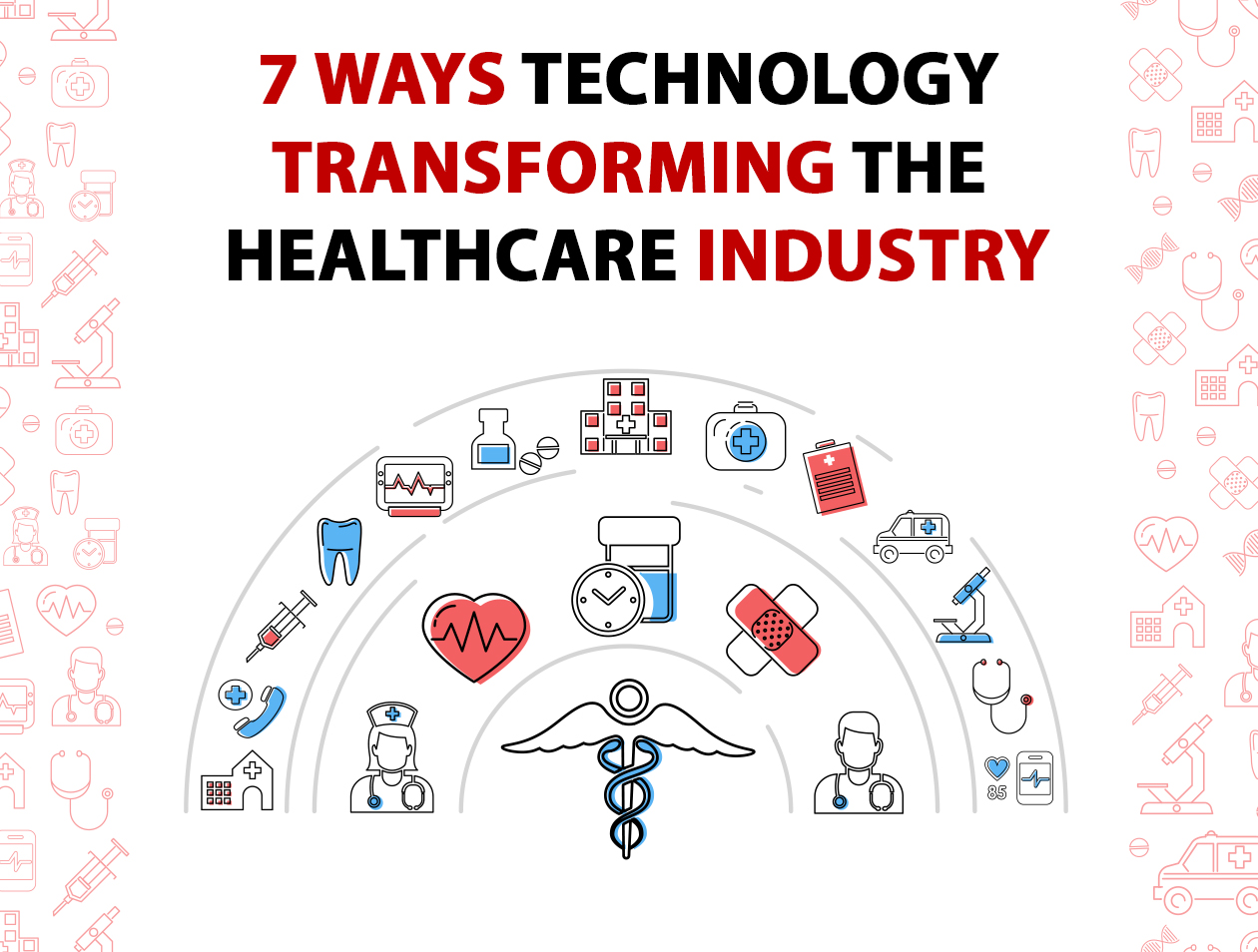
Advanced technological solutions have made practically every area of our life better. The healthcare industry is no exception. There are several applications of technology in healthcare, ranging from artificial intelligence to 3D printing.
Its advantages are many and significant. In this post, you will learn about a few technological advancements that are changing the face of the healthcare sector.
- Online training and education
Digital transformation has an influence on healthcare education on a number of different levels. For starters, by enrolling in online courses, students are no longer restricted to attending classes at local medical institutions.
They will be able to pick from colleges and training courses located all around the globe. Online education is more flexible than traditional classroom instruction, in addition to being more accessible. It is designed to accommodate the hectic schedules of healthcare workers, enabling them to study from any location at any time.
Second, virtual reality plays a critical role in the education of healthcare professionals. Students studying healthcare benefit from these cutting-edge technology, which provide them with engaging hands-on experiences.
They have the ability to convert a blank space into an operational theatre. Students will be able to practice more successfully and prepare for real-world careers as a result of this.
- Wearable technologies
Mobile devices, which include anything from smartphones to fitness bands, are increasing at an incredible pace. The use of wearables not only makes our lives easier, but they also have a significant impact on the healthcare business.
As a result, it should come as no surprise that the wearable medical device market is expected to reach $27 million by 2023.
Healthcare practitioners may obtain more insight into the health of their patients via the use of technologies such as sweat meters, step sensors, heart rate sensors, and oxygen oximeters. Doctors will be able to customize patient experiences and prescribe more effective treatments as a result.
- Artificial intelligence
If you are still concerned that artificial intelligence may eventually replace your work, you need not be concerned. While artificial intelligence cannot replace your work, it may make it better.
Natural language processing, machine learning, and task automation are just a few of the artificial intelligence technologies that are transforming the healthcare industry. There are several applications for these technologies in the healthcare industry, ranging from pediatrics to immunology.
The most advantageous aspect of artificial intelligence is that it gathers and analyses vast volumes of data, transforming them into actionable insights. It is critical in the early identification of illness in the early stages. In the case of pink screening services like cancer mammography, this is especially important.
For example, artificial intelligence algorithms can assess breast cancer risk more quickly than people. The fact that they are 99 percent accurate is the most essential feature.
For clinicians, this is an opportunity to lower the likelihood of human error. Millions of papers and breast cancer photos are combed through by these tools, which detect alterations that could otherwise go undetected.
These digital transformations are also critical in the treatment of patients. Artificial intelligence (AI) systems analyze medical information and compare the health of patients with their treatment. As a result, they can assist clinics in identifying patterns and prescription mistakes.
- Robotics
Robotics is closely associated with the artificial intelligence technology discussed above. They are used in a variety of healthcare settings, including patient rehabilitation, cleaning, surgery, and the care of those suffering from chronic illnesses.
Robotics can assist healthcare firms in lowering costs and reducing the need to hire additional employees. Above all, they have the potential to enhance patient care.
Robots also play an important part in the training of healthcare professionals. Examples include the ability of robots to simulate situations, enabling healthcare staff to be better prepared.
- Blockchain
In addition to automating tedious jobs and providing better patient care, the advanced technologies outlined above help healthcare in a variety of other ways. However, as the cloud, the Internet of Things, and big data become more prevalent, cyber-security dangers are becoming more prevalent as well.
A recent analysis found that data breaches cost the healthcare industry an estimated $6.5 billion every year. Healthcare organizations store sensitive patient data on their servers, such as their health records or financial information, to protect their patients’ privacy. As a result, they are an attractive target for cyber hackers.
In order to overcome this problem, one of the most successful approaches is the use of blockchain technology. They make use of decentralization and encryption to ensure that patient information is unalterable and completely visible for all parties involved.
Most significantly, attackers will not be able to access or compromise sensitive information. Institutions in the healthcare industry are beginning to recognize the significance of blockchain technology.
- 3D printing technology
The use of 3D printing has elevated the healthcare business to whole new heights. Companies in the healthcare industry may save time and money by using it.
Companies may use these technologies to produce artificial bones, prostheses, and supports, among other things. 3D printing may even be utilized for the creation of transplants and the mending of damaged tissue. These technologies have a tremendous amount of promise.
- Mobility and cloud access
When it comes to boosting accessibility for patients and clinicians alike, mobility and cloud access have been a significant leap forward in technical advancements. Cloud-based solutions are quickly becoming a vital part of a healthier healthcare ecosystem, with applications ranging from scheduling patient appointments to exchanging diagnostic results and improving interoperability efficiency.
Conclusion
In the year 2022, we will see the transformation in healthcare technology, as well as its widespread use. These technological advancements, ranging from artificial intelligence and robots to wearables, have the potential to increase the efficiency of healthcare companies.
They will be able to automate numerous monotonous operations, enhance patient health and care, and spot ailments more quickly as a result of these technologies. Healthcare services will become more economical as a result of technological advances such as 3D printing.





